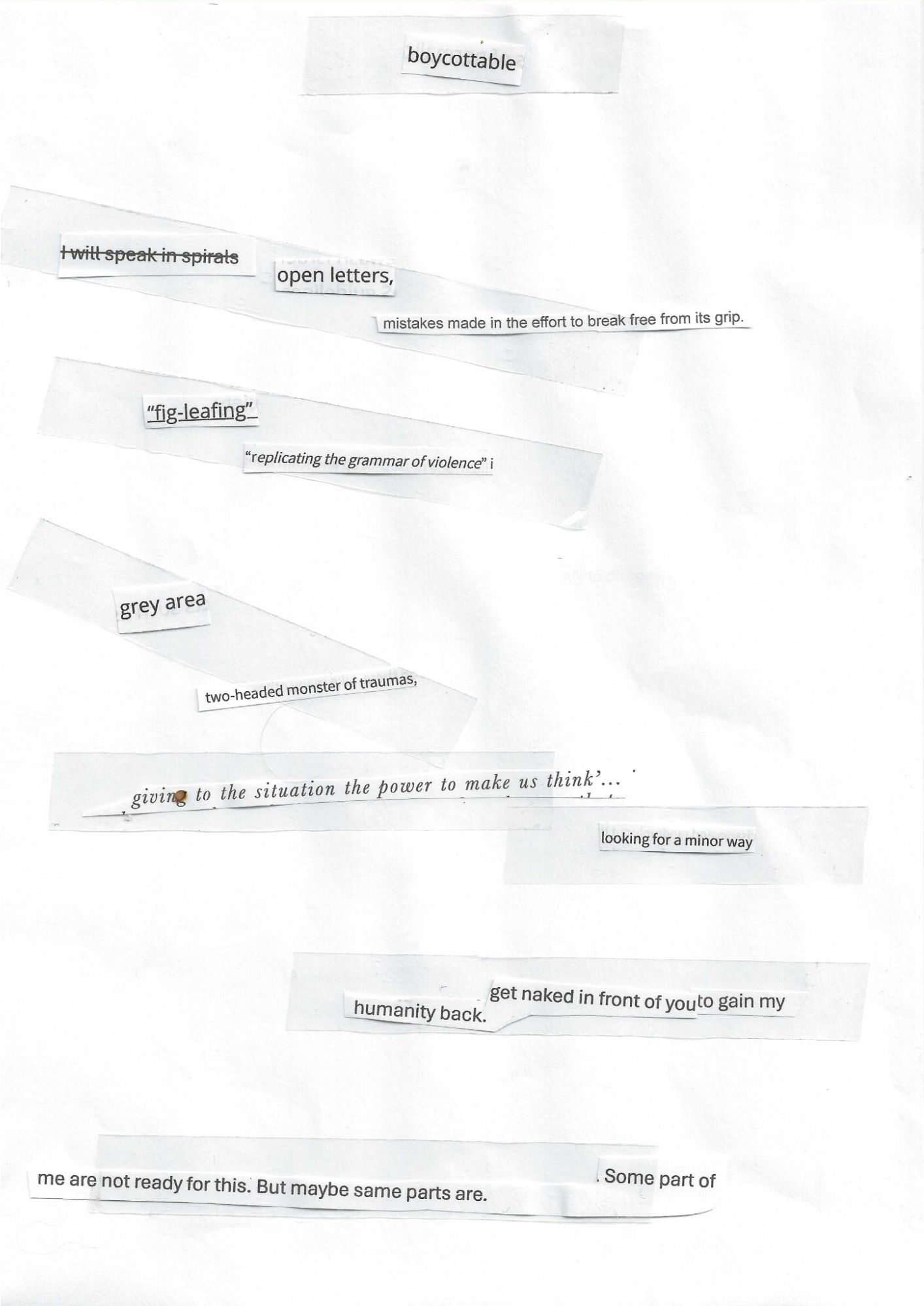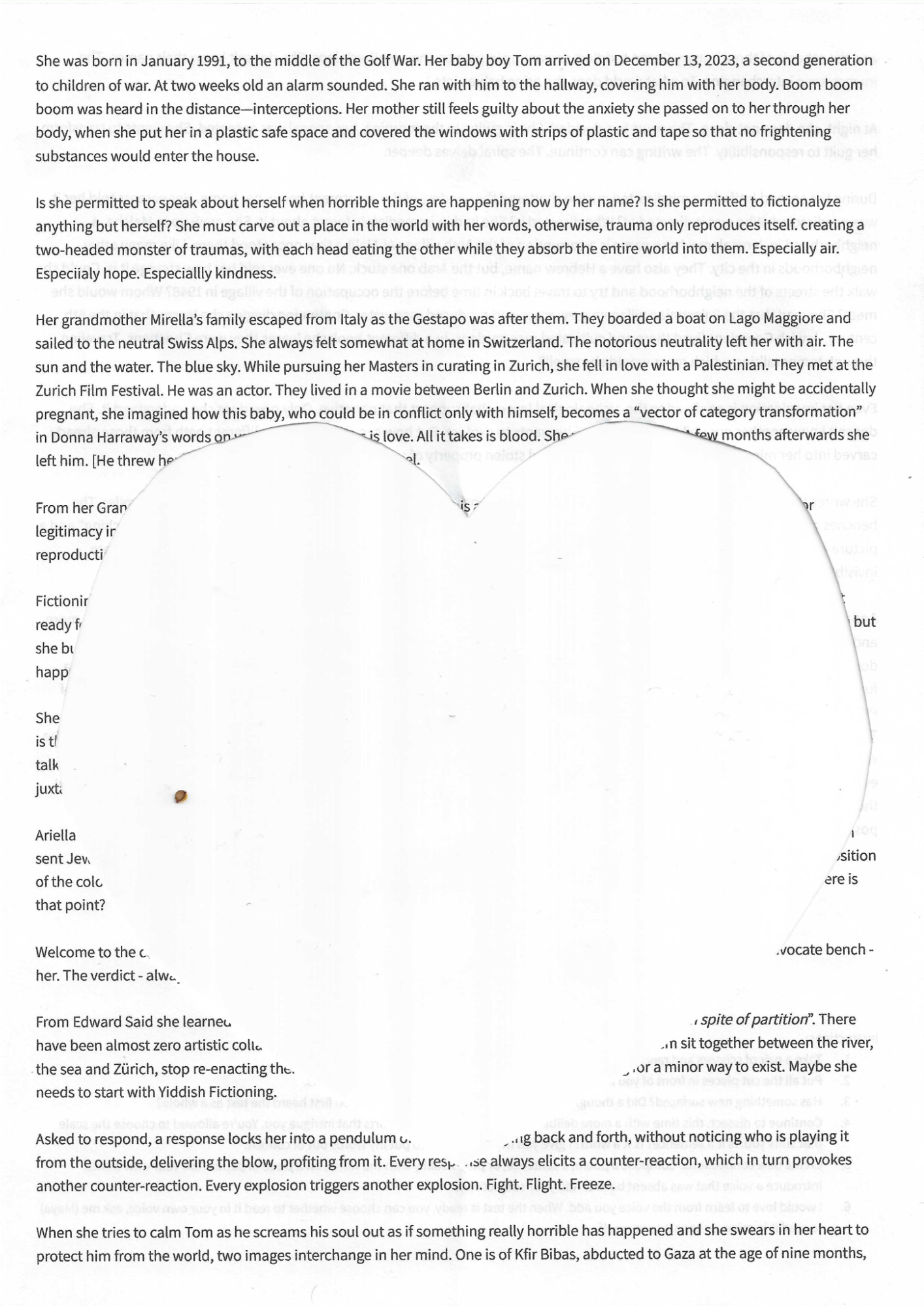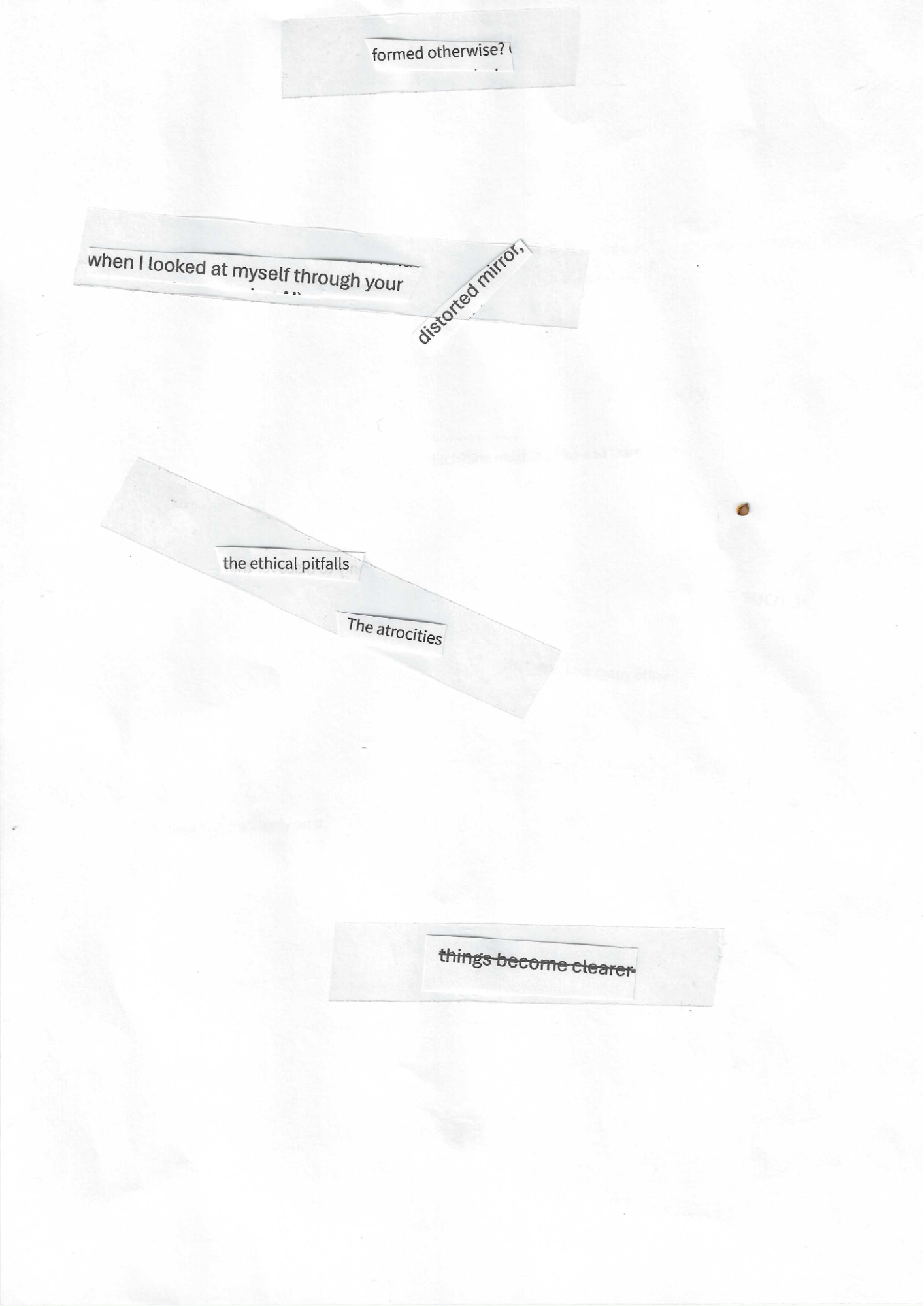Rehearsal is not a starting point. There is no single source, no singular moment in time where it all began, when someone was right and someone was wrong. Only one rehearsal, followed by another, and then another.
Rehearsal I
FictioningLab - Revised proposal
Art that operates within existing language and tools only reproduces those conditions. Art that operates within existing language and tools in Israel/Palestine, art that documents atrocities and represents them according to predetermined frameworks fails to bring about change. This is our premise. Stemming from our desire to live a life and foster relations and practices that are different from those we inherited, and the doctrines we were raised on, Darya Aloufy and I established the FictioningLab - an independent, non-institutional group, inviting Israeli and Palestinian creators to join us in shared process engaging with Fictioning.
Our understanding of Fictioning draws from the works of . Fictioning as a verb, distinguished from fiction or science fiction, encompasses a range of literary and artistic techniques and technologies that hack the fictions of our time, practices that summon the parts of us that are still becoming, that have the potential to facilitate ‘coming communities’.
Rehearsal II
FictioningLab - Reality
After months of forming the groups and preparing ourselves, our inaugural meeting was scheduled for October 2023.
It did not take place.
When we relaunched the group a few months later, the Palestinian members decided to withdraw from participating, at this time, feeling unsafe to collaborate with Israelis, at this time.
We were not ready yet.
But we wouldn’t become ready unless we took the first step.
Rehearsal III
Rehearsal Mirrors
When presented our initial aim—and our failure to come together in the shadow of the genocide in Gaza—we faced strong concerns coming from some participants from the School of Commons. The emotional and intellectual journey that emerged from this encounter, from the perception of what FictioningLab seemed to do or represent against the backdrop of the reality in Israel/Palestine, became Maya's project at the School of Commons: Rehearsal Mirrors.
While the lab itself is still in the process of becoming, Rehearsal Mirrors stands with one foot inside the lab and one foot outside—projected into the polarized international discourse. It serves as a rehearsal space to perform, critique, and examine the ethical and political complexities surrounding the lab, as seen through reflections—and distorted reflections.
It is a space that seeks to bring together all of these reflections not through predefined categories, but by being with what is seen from the outside and what is experienced from within. The project is also an invitation to anyone who is willing to look at this mirror and confront the most violent and ugly facets of Western imperialism, offering room for attempts and mistakes to be made in the effort to break free from its grip.
Guiding Rehearsal Mirrors’ ethical compass is a vision of decolonialism that seeks to dismantle colonial structures without destroying the lives of the people involved.
Its ways of working include being present and honest while refusing the instinct of flight, fight or freeze, incorporating techniques of perspective change such as the cut up and deep listening.
Rehearsal IV
Boycottable


